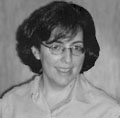If there was a theme in what the many published writers said at the Austin SCBWI conference a couple weeks ago, it was that perseverance is an important part of their success.
Three of this year’s ALA winners were there — Jacqueline Kelly (The Evolution of Capurnia Tate), Marla Frazee and Liz Garton Scanlon (All the World illustrator and author) and Chris Barton (The Day-Glo Brothers) — and they all told tales of facing many rejections before publication and of pursuing their dreams of being published for years before making them a reality.
Kirby Larson, author of the 2007 Newbery Honor book Hattie Big Sky, said she received piles of rejection letters before her publishing career began. Finally, after many years of trying and taking a 10-day course that happened over her daughter’s birthday — what a sacrifice — she sold her first picture books. A few more followed, but then she didn’t sell anything for seven years. That’s when she tried a different type of writing and Hattie Big Sky was born.
Former editor and now full-time author Lisa Graff explained that for her last book, Umbrella Summer, she wrote 18 complete drafts.
Yesterday, this theme was reinforced in an article in the Los Angeles Times about non-fiction author Rebecca Skloot, whose The Immortal Life of Henrietta Lacks appeared on Amazon’s bestseller list immediately after the book debuted on Feb. 2. This was all after Skloot spent 10 years working on the book and went through three publishing houses, four editors and two agents.
All these writers shared something in common: They didn’t give up.
So, the motto for today: Never give up.
Write On!





Just read through all your posts – such an abundance of info!
Sarah
http://www.writingonthesidewalk.wordpress.com
Glad you liked them, Sarah. Yeah, it was a great conference. And I couldn’t include everything or I’d be writing about it for months. Conferences with great lineups like these are very valuable.
A little inspiration goes a long way. Thank you for sharing!
My pleasure, Grier. And I agree, a little inspiration does go a long way.
Thanks for this! I’m a member of the SCBWI and am embarrassed that I didn’t know about the Austin Conference. Is this an annual event? I have a cousin who lives in the area and I would use the excuse to sleep on her couch next year, if so.
Hey Kathy,
Yeah, the Austin SCBWI chapter has a conference every year. Their website is at: http://www.austinscbwi.com/
And you can check events for all regions at the SCBWI website: http://www.scbwi.org/default.aspx
SCBWI puts on some great conferences, and they’re definitely worth checking out. Look at the lineups, see if the speakers are good for what you write and sign up. The bigger conferences are more expensive, like the annual summer conference in Los Angeles and winter conference in New York, but they’re worth it. If you can’t afford them, though, you can find some great smaller conferences, like this one-day one in Austin for less money.
Sam, It sounds like a wonderful conference.
CAn’t wait to hear about it all first hand.
Thanks for the updates!
It was great, Laura. The Houston one will be great too.
Thanks for sharing your notes and thoughts so thoroughly. It’s super helpful. I love going to regional SCBWI conferences and reading notes from others. I’ve heard Cheryl Klein and Mark McVeigh at other conferences, but didn’t take nearly so detailed notes as you did. Thank you!
[...] writingonthesidewalk I have been recently reading blogger Samantha Clark’s update for the Austin SCBWI conference. It sounds like it was a great event and filled with tons of useful information for all who [...]